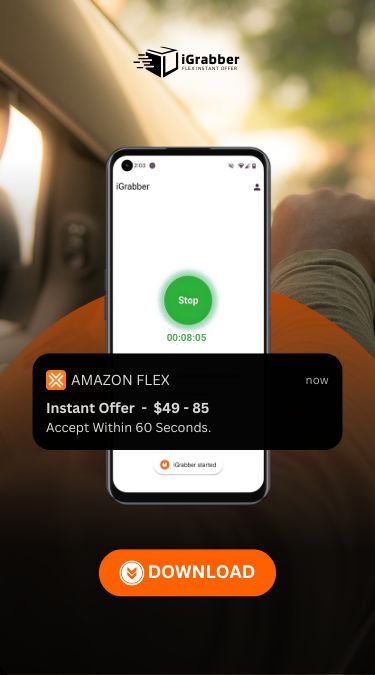Amazon Flex has become a popular platform for gig economy workers seeking flexible employment. However, the system is not without its controversies. Recently, a series of lawsuits have drawn attention to issues surrounding block grabbing and offer tools, sparking a debate about fairness and ethics within Amazon Flex. Let’s delve into the heart of these lawsuits and understand what they mean for Amazon drivers and the gig economy as a whole.
The Essence of Amazon Flex
Amazon Flex allows drivers to use their vehicles for delivering packages. The flexibility and independence attract many drivers. Delivery blocks, ranging from a few hours to a whole day, are offered through the Amazon Flex app. While the concept seems straightforward, the process of attaining these delivery blocks has given rise to significant issues among drivers.
Block Grabbing: The Competition Among Drivers
In the world of Amazon Flex, competition for lucrative delivery blocks is fierce. Drivers often refresh their apps constantly, hoping to secure the best offers. This competitive atmosphere gave birth to the concept of block grabbing. Drivers who engage in block grabbing use third-party applications or bots to gain an edge in securing delivery blocks. These tools automate the process, allowing some drivers to claim deliveries faster than others relying solely on manual efforts.
Why Block Grabbing Is Problematic
Block grabbing introduces a range of concerns:
- Unfair Advantage: Drivers using bots can circumvent the manual process, putting those who play by the rules at a disadvantage.
- Compromised System Integrity: Automated tools may breach Amazon’s app terms, potentially causing disruptions or vulnerabilities.
- Erosion of Trust: The fairness perceived among drivers is questioned, leading to dissatisfaction and increased grievance.
These issues form the backbone of the lawsuits against Amazon Flex, as drivers demand an equitable opportunity to secure delivery blocks.
The Role of Offer Tools
Offer tools, similar to block grabbers, have further complicated the landscape. They are designed to notify drivers instantly when a delivery block is available, often allowing for quicker and more efficient grabs. However, these tools operate at the margin of acceptable use, skating over ethical boundaries and raising questions about their legitimacy.
Offer Tools Implications
The presence of offer tools has amplified the existing tension between drivers who follow Amazon’s protocols and those who employ technological workarounds. While the tools can increase productivity for their users, they also exacerbate disparities, paving the way for further legal disputes over the dominance of bots in the platform.
Legal Battles: Drivers vs. Amazon Flex
The growing frustration among drivers has culminated in significant legal action. These lawsuits aim to bring attention to the inequities driven by technology use within the platform. By challenging Amazon Flex’s current policies and the impact of block grabbing and offer tools, drivers strive for a more balanced and transparent system.
For more detailed information about the ongoing litigation, you can visit the source directly.
Amazon’s Response
Amazon, on the other hand, faces the challenges of maintaining platform integrity while ensuring satisfaction among its drivers. Balancing these elements is crucial for the company’s reputation and the credibility of its Amazon Flex service. Consequently, Amazon is left staunchly defending its policies while exploring potential reforms to better regulate the practices impacting its app.
Impact on the Gig Economy
The issues engulfing Amazon Flex are not isolated. They resonate throughout the gig economy, where fairness and equal opportunity are under constant scrutiny. Uplifting the gig economy workers requires innovations that go beyond technological shortcuts. It demands comprehensive policies that balance efficiency, fairness, and worker satisfaction.
Lessons for Gig Economy Platforms
Other platforms can draw valuable lessons from Amazon Flex’s predicament:
- Transparent Regulations: Clear and defined rules regarding app usage and technology can prevent exploitations.
- Technological Safeguards: Platforms must ensure their apps remain robust against unfair practices.
- Engagement with Workers: Continuous dialogue with workers can lead to mutual understanding and better policy formation.
Conclusion: Towards a Fairer System
The Amazon Flex lawsuits serve as a reminder of the challenges inherent in the gig economy. With evolving technology comes the responsibility to create fair platforms for workers to compete on equal footing. For more insights into creating a balanced ecosystem, platforms like iGrabber demonstrate how fair systems can enhance worker productivity fairly and equitably. By addressing and learning from these challenges, companies can pave the way for a future where technology and fairness coexist harmoniously.





